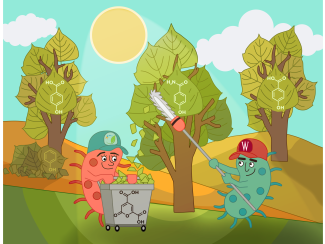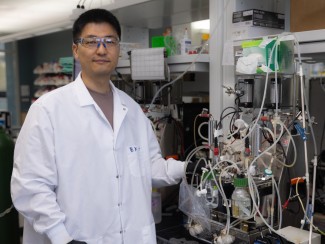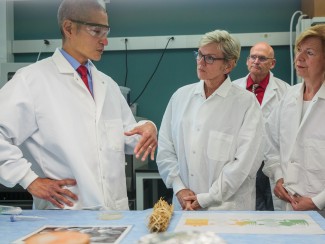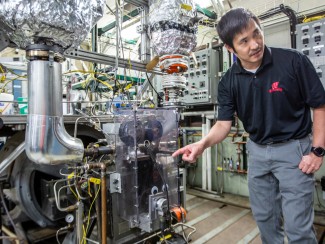This month's coverage focused on how different sectors of energy can expand Wisconsin's economy.
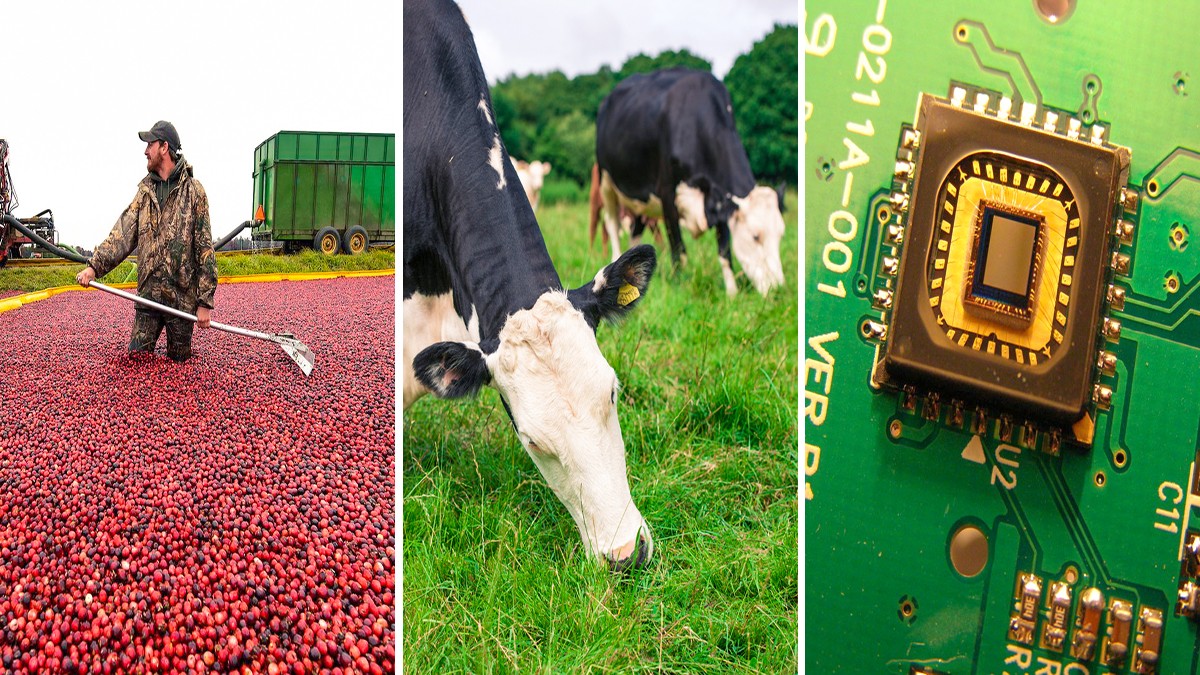
In January WEI researchers started conversations across the media landscape about the possibilities of sprouting Wisconsin's economy.
Here’s a sweet recipe for cheap, green plastic—sugar and corncobs

Science Magazine
Plastic has a huge carbon footprint: Producing the petroleum-based material accounts for at least 100 milion tons of carbon emissions each year. Now, a team of researchers at the University of Wisconsin in Madison has invented an inexpensive way to make plastic with a much lighter touch, from sugar and corncobs.
Featured Researchers
Researchers make grasses more digestible

Ethanol Producer Magazine
Plant biomass contains considerable calorific value but most of it makes up robust cell walls. The trouble is that this robustness still makes them less digestible in the rumen of cows and sheep and difficult to process in bioenergy refineries for ethanol fuel. But now a multinational team of researchers, from the U.K., Brazil and the U.S., has pinpointed a gene involved in the stiffening of cell walls whose suppression increased the release of sugars by up to 60 percent.
Featured Researchers
The global market for advanced electronic materials totaled nearly $4.9 billion in 2016

Business Insider
The market for new types of electronic materials including graphene, quantum dots, photonic crystals, nanotubes, superconductors, nanowires, conductive/semiconductive polymers, phase-change materials and molybdenite.
Featured Researchers
Report predicts thousands of 'advanced energy' jobs could be added to state

Wisconsin Public Radio
A report says Wisconsin could add thousands of jobs in the next five years at companies that make energy-saving sensors and control units for manufacturing and buildings.
Energy sensors and controls could boost Wisconsin economy, study says

Midwest Energy News
Wisconsin is poised to capitalize on “the biggest market opportunity of our era,” according to a report released by the Wisconsin Energy Institute, the Midwest Energy Research Consortium and the American Jobs Project.
Wisconsin energy grid likely to be less coal-fired in the future

Wisconsin Public Radio
Wisconsin's energy production is in line with national trends that show declining use of fossil fuel plants, and in particular coal-fired plants.
Featured Researchers
Solar panel tariffs and advanced energy jobs in Wisconsin

WORT 89.9
On this episode of the Wisconsin Energy Broadcast, hosts talk to Gary Radloff of the Wisconsin Energy Institute (WEI) at UW-Madison about the new report on clean energy jobs created by the American Jobs Project in partnership with the WEI and the Midwest Energy Research Consortium. “With targeted investments and forward-looking policies, Wisconsin could capitalize on its strengths in sensors and controls for the advanced energy industry to drive economic growth and support over 44,000 jobs annually.”
Counting cranberries gets easier with new technology developed at UW-Madison

Milwaukee Journal Sentinel
Cranberries are filled with water and the surrounding vines are not. Just as the strength of the reflected signal in weather radar indicates how much water is contained in clouds, the same technology can be used to detect the number of cranberries in a field.
Featured Researchers
Panel explores potential for clean energy jobs in Wisconsin

The Badger Herald
The panel emphasized the importance of renewable energy not only to the environment but also to the economy... Finding a market that accepts the cost of funding renewable energy would profit the field and would allow the industry to sustain itself, the panelists said. Seeking aggressive state support for funding and policy changes would allow researchers to operate and conduct experiments.

